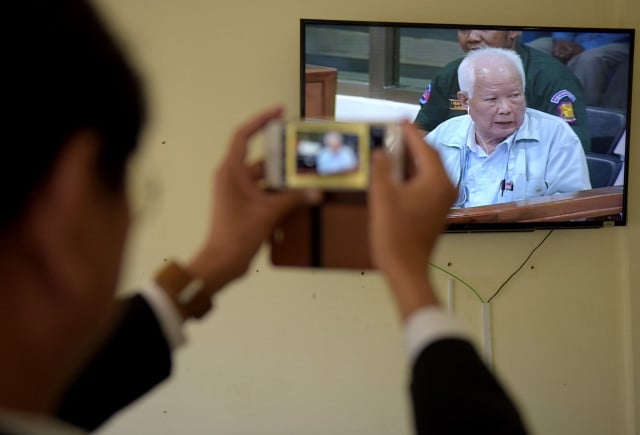Dispute-Resolving Body Gets King’s Signature

- By Meng Seavmey
- November 6, 2023 10:55 AM
PHNOM PENH – A National Authority for Alternative Dispute Resolution has been signed into law, aiming to help people settle out-of-court disputes with less expense and time.
King Norodom Sihamoni signed a royal decree to establish the authority on Nov. 2.
It will deal with out-of-court settlements, business disputes and other disputes through mediation with the consent of the parties or at their request.
It aims to ease the congestion of lawsuits in tribunals, enhancing the quality, effectiveness and speed the resolution process, the decree says.
It applies to civil, disputes and other disputes, except for criminal offenses unless it is permitted by law. It is in response to the complex judicial tribunals, long duration, high expenses and complications of cases.
Social analysts said the rule of law must be strengthened and civil society groups, or at least monitoring groups, should be encouraged to monitor the procedures to ensure the effectiveness.
Pa Chanroeun, president of the Cambodian Institute for Democracy (CID) and a social analyst, thinks the establishment is a mechanism to ease the work in the judicial system. Concerns cannot be overlooked as the country is ranked second-bottom on an international rule of law index.
Effectiveness of the implementation must be ensured. Chanroeun said there should be in-depth reform of the system.
“In this sense, the authorization and the rule of law should also be strengthened across the country. It must be ensured that the relevant authorities fulfil their role properly,” he said,
Yong Kim Eng, president of the People Center for Development and Peace, said, “The establishment will help the citizens financially and personally. It will save their money and mediate the parties to prevent them from turning into enemies because they have problems with each other.”
Out-of-court settlement would resolve the problems with peace. However, the implementation would require qualification, honesty, and transparency from the authorities or experts applying the mechanism.
"However, if the implementation is similar to that in the judicial tribunal, the citizens might run to the courts instead of relying on this Alternative Dispute Resolution," he said.
"Therefore, the government should only assign the expert officials in the justice system to ensure the effectiveness. There must not be any corruption by bribes or connections."
Kim Eng said participation of civil society groups to monitor the procedures would be a better way to ensure transparency.
“At least, there should be a monitoring group for the implementation,” he said.















